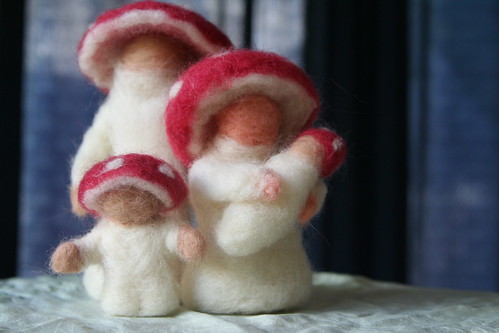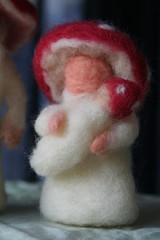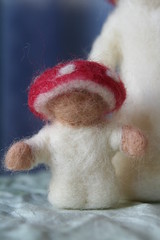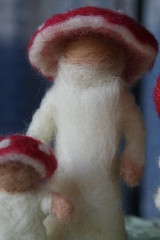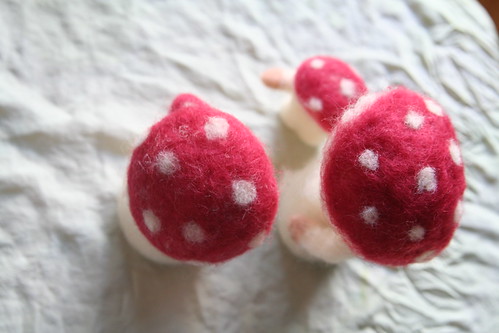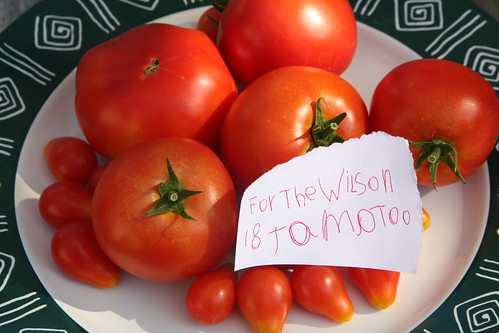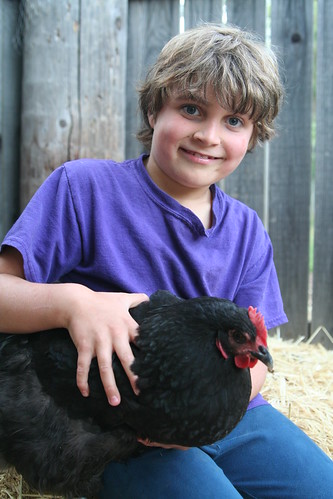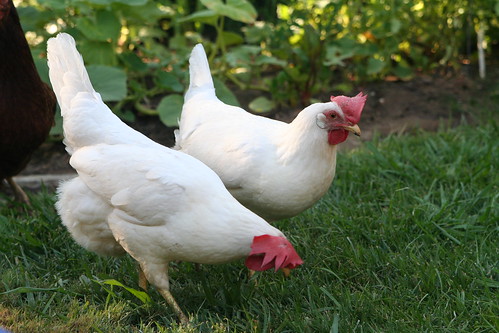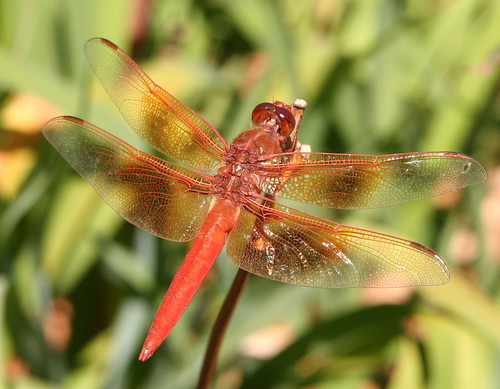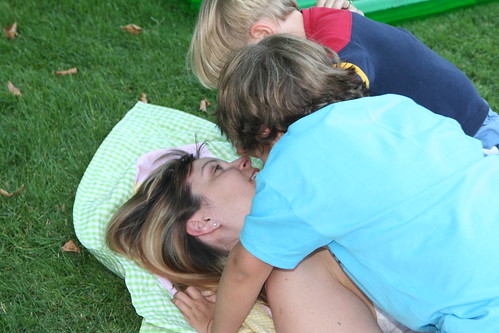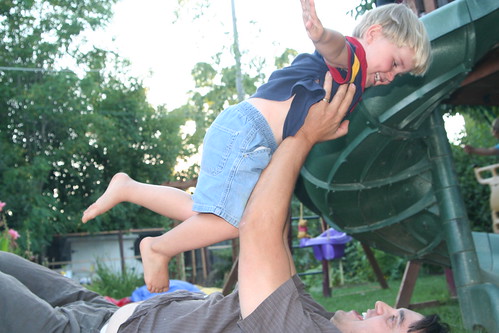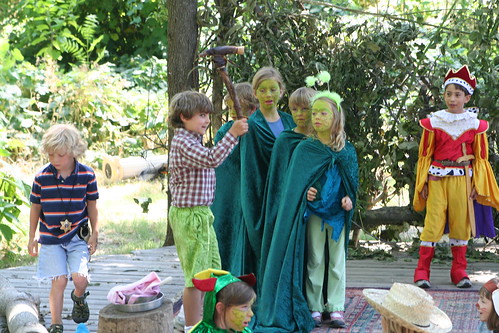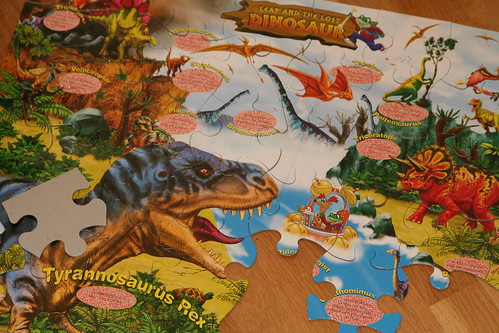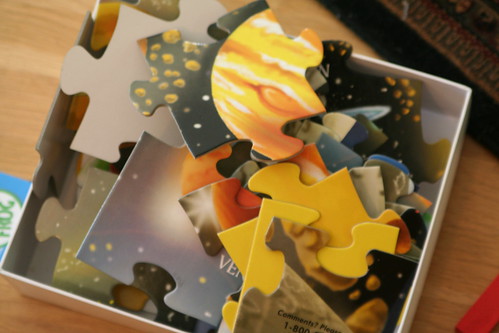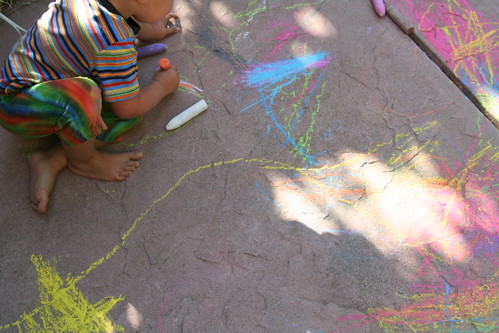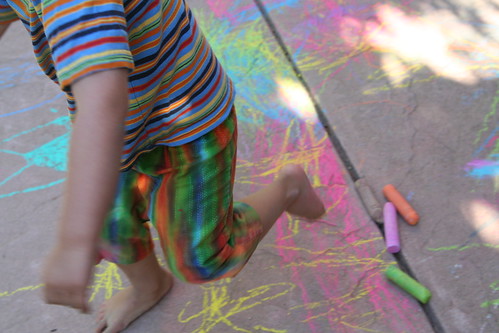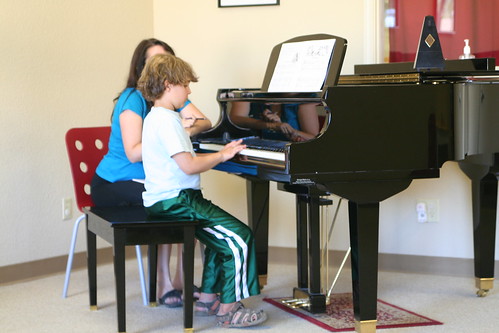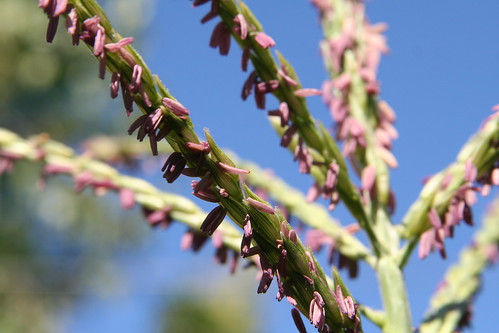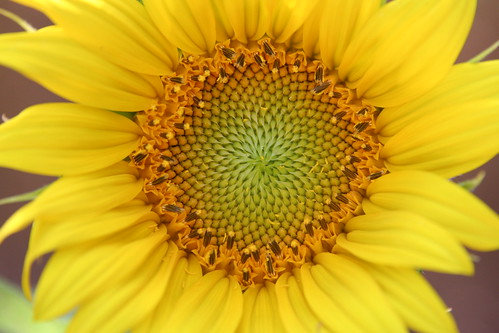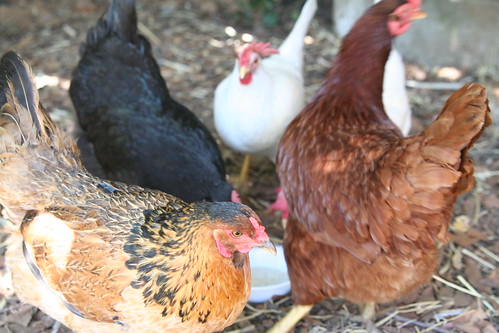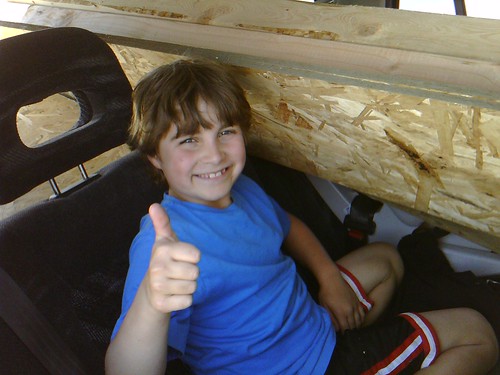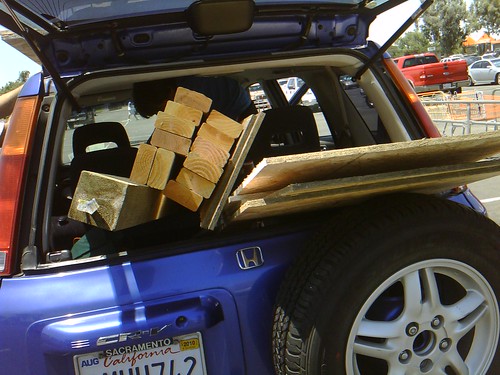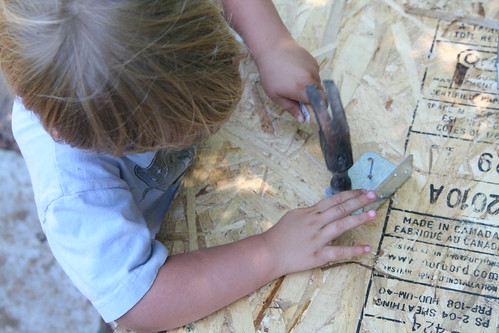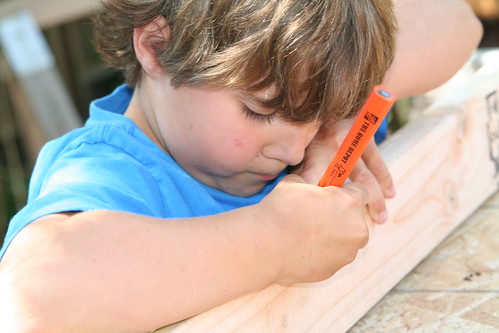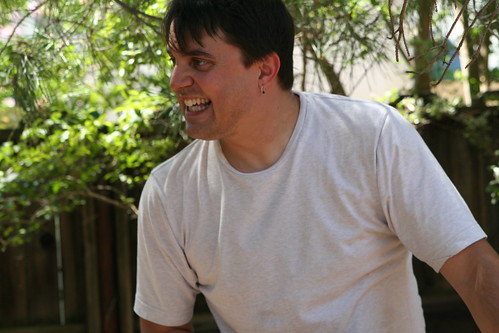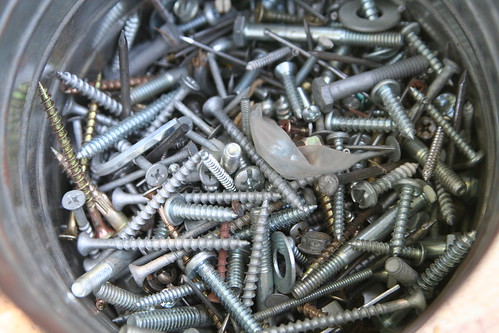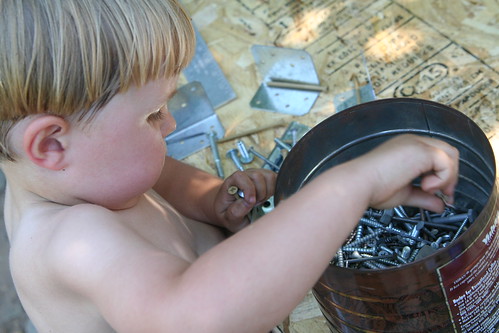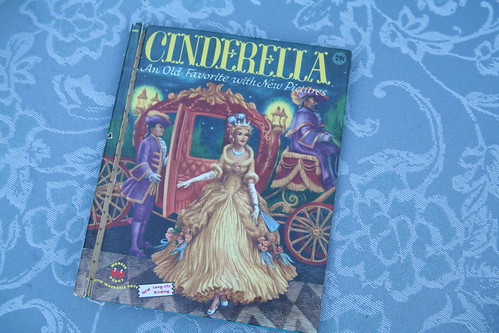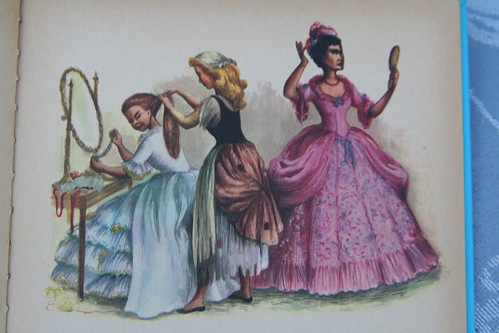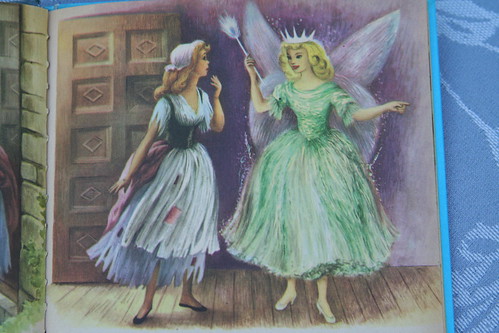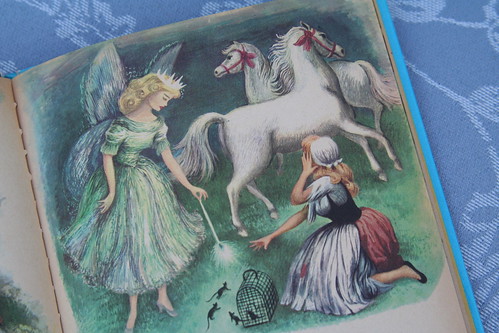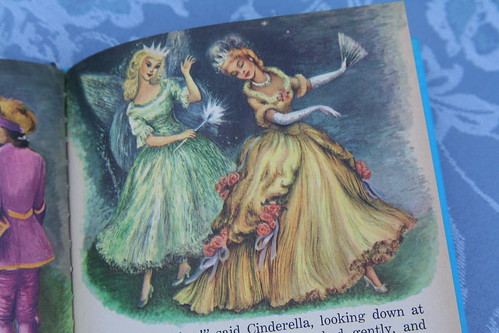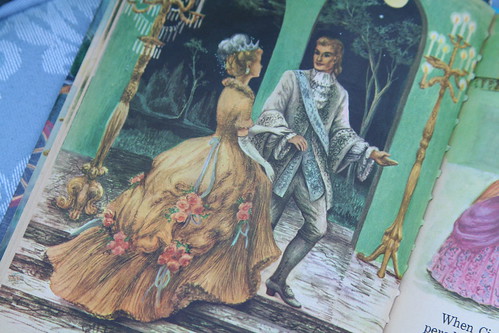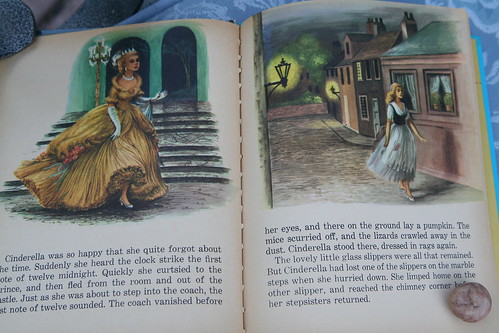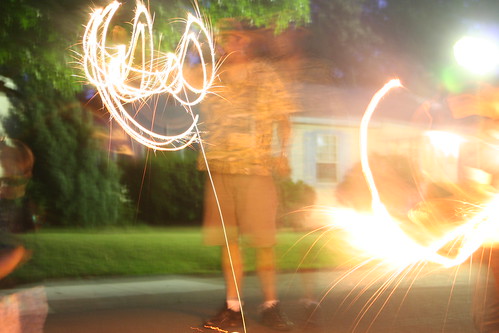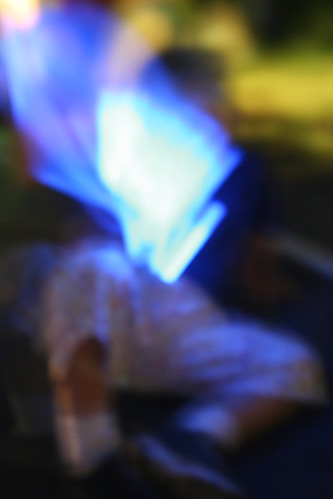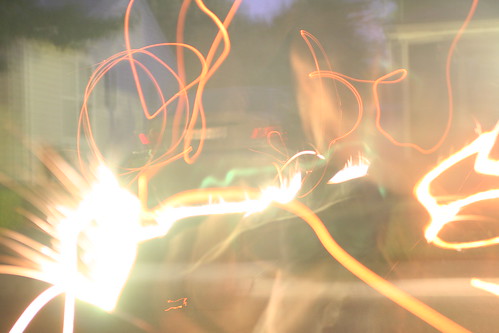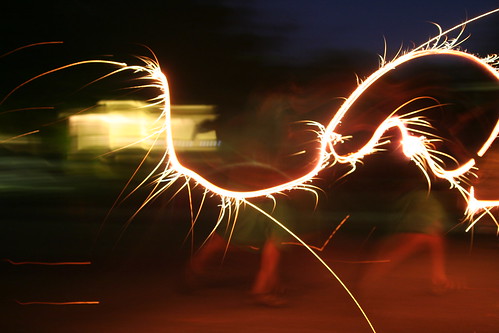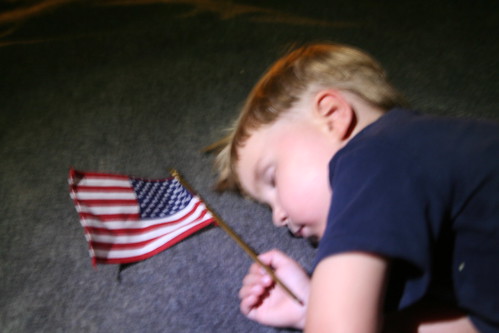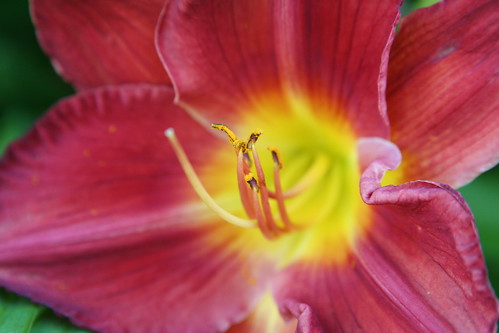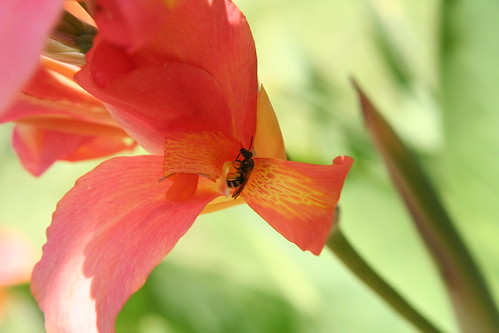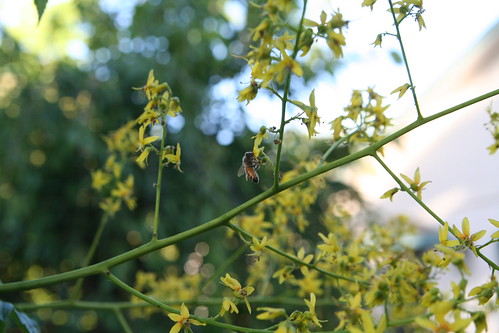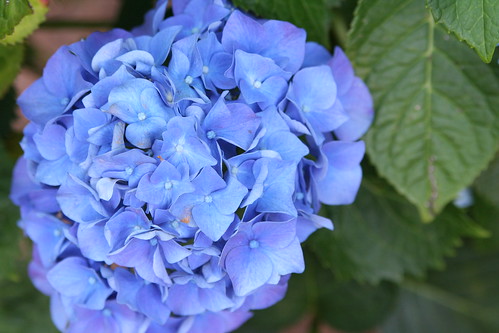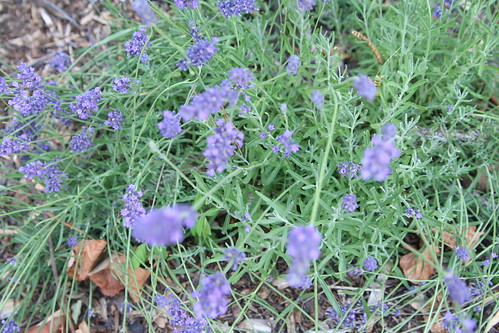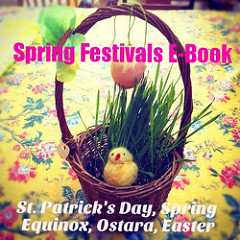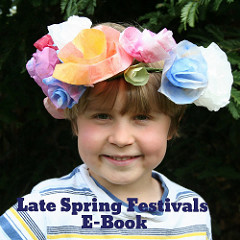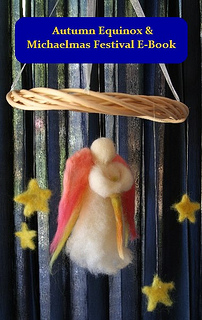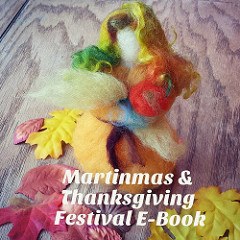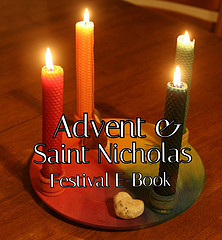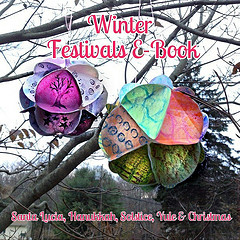The Wicked Kings of Bloon is written and illustrated by Steven Kellogg and is copyrighted 1970. Kellogg is the author and/or illustrator of many books for kids, as you can see on his website, including Is Your Mama A Llama by Deborah Guarino, a favorite in our house. As you can see, I have had Bloon since I was young enough not to realize that I shouldn’t be writing “Scool Book” on my books. My hardback copy was purchased for $1.00 probably about 1975, but that’s really just a guess.
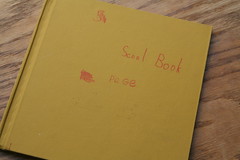
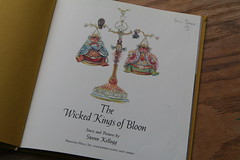

Kellogg’s artwork is amazing—rich and colorful, textured and emotional. To my eye, it appears to be both watercolors and colored pencils.
The story contains several morals, the main one being that war is wrong and doesn’t make anyone happier.
“Bloon is a summer land of warm golden fields and tiny villages. The gentle folk who lived there spend their days walking through the flowers, telling silly stories, and snoozing in the sun.”
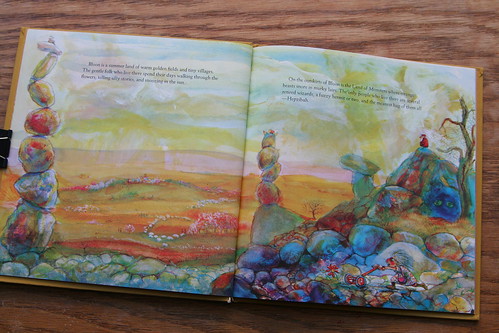
The citizens of East Bloon are happy, simple people living in a bucolic world near the Land of Monsters, but that isn’t a problem for them at all …
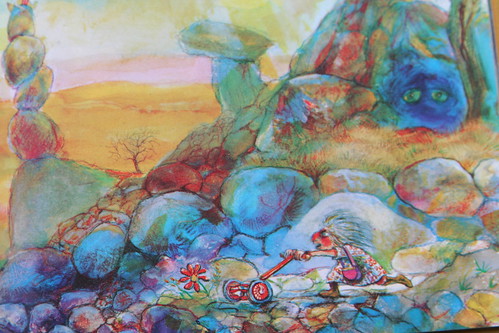
… until “the meanest hag of them all,” Hepzibah, raises her twin sons, Horridge and Heathfern, to despise one another. See how wicked she is? She’s about to mow down that flower!
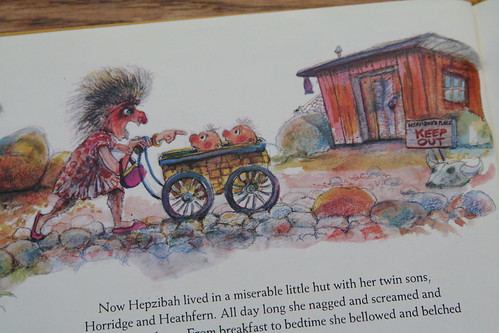
“‘HORRRRRRRRIDGE! Horridge, you little wretch, why can’t you do anything right? Why can’t you be like Heathfern?'”
“‘HEATHFERN, you ugly beast, why are you so clumsy and awful? Why can’t you do anything right? Why can’t you be like Horridge?'”
That would do it, don’t you think?
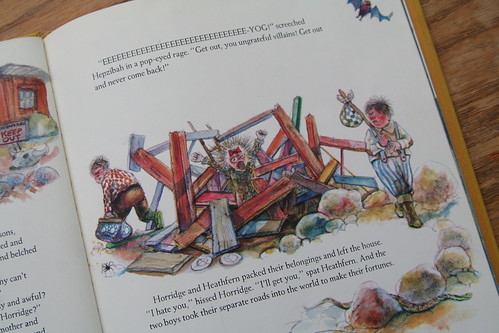
By the time the boys were twenty, they had flattened their miserable shack with their fighting and Hepzibah kicked them out. “‘I hate you,’ hissed Horridge. ‘I’ll get you,’ spat Heathfern.”
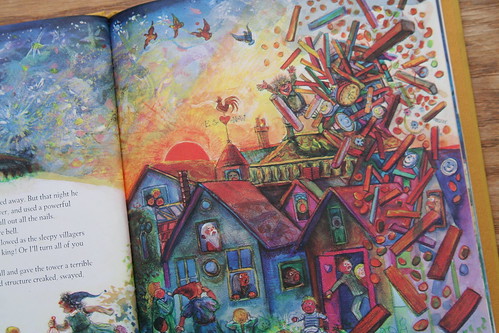
Horridge left the Land of Monsters and came to the peaceful village of East Bloon, “where he found the happy villagers giggling, tickling each other, and dancing around the square.” Horridge decided he wanted to be king of East Bloon, so he threatened the villagers. “‘Unless you make me your king, I will topple the tower of your town hall at dawn tomorrow!'” And with the help of a powerful magnet, he did. The villagers, not knowing what else to do, made him their king and brought him all of their precious treasures.
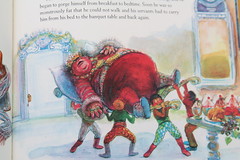
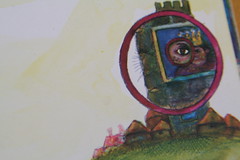
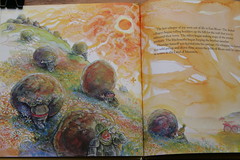
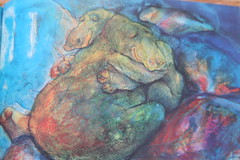
Horridge grew fat from eating all day and all night. “He insulted the ladies. He punched the village elders. He threw things at the members of his court. And still he was not happy.” One day, he spied through his spyglass the friendly neighboring village of West Bloon, only there was a fat, horrible king looking back at him. Heathfern! “‘EEEEEEEEEEEEEEEEEEEEEEEEEEEEEEEEEEEEEE-YOG!’ shrieked Horridge.” And the once-peaceful village of East Bloon began to prepare for war. “The last whisper of joy went out of life in East Bloon.”
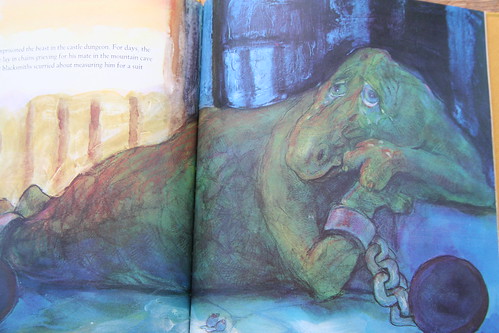
Horridge went to the Land of Monsters and enslaved a giant, cuddly monster, wrenching him away from the arms of his beloved, to be a beast of war. “For days, the gentle creature lay in chains grieving for his mate in the mountain cave while the court blacksmiths scurried about measuring him for a suit of armor.”
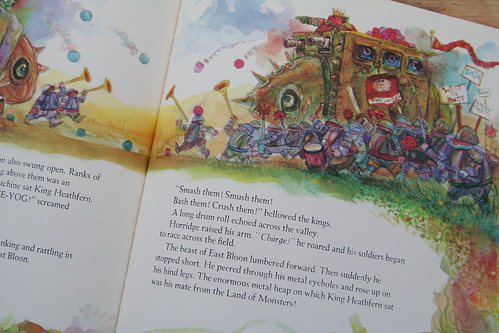
In time, the fateful day of battle came. Soldiers from both East Bloon and West Bloon marched out of their fortified cities. “‘Smash them! Smash them! Bash them! Crush them!’ bellowed the kings.” The war beast of East Bloon lumbered forward, until he recognized his beloved, covered tip to toe in armor of her(?) own to fight on the side of West Bloon.
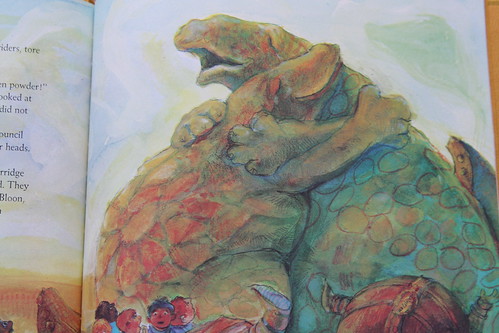
“Crying out for joy, the two happy animals toppled their riders, tore off their metal plates, and fell gurgling into each other’s arms.” This was the wake-up call that the villagers needed. They whispered and conferred among themselves, and then dethroned the kings Horridge and Heathfern, in favor of a peaceful United Kingdom of Bloon.
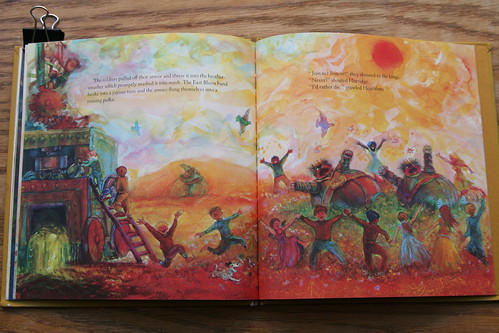
The trappings of war were thrown off and demolished. “The East Bloon band broke into a joyous tune and the armies flung themselves into a rousing polka.” Since the brothers could not put aside their differences and join the villagers in a peaceful life …
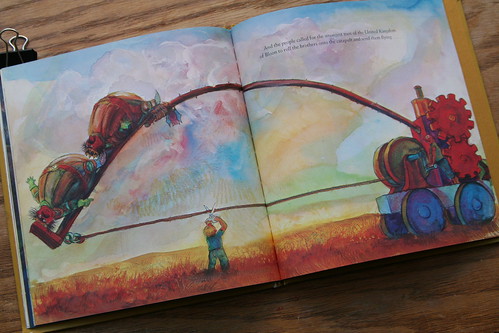
… the villagers sent them flying …
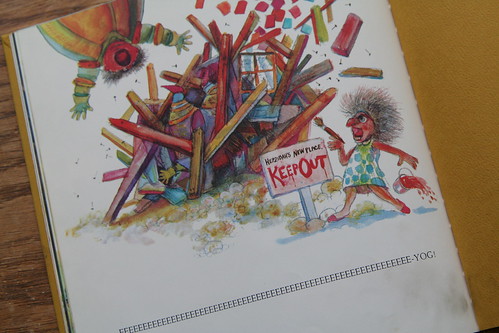
… right back to their hag mother.
This is the first book I can remember tackling the idea of war. That these gentle people could be convinced by bullies to abandon their happy pursuits and go to war really bothered me. I used to wonder why Hepzibah was so cruel, and how anyone could think parting those two gentle creatures was OK. I guess the story is a product of its time and it was very powerful to me.
I pulled this book out last week and read it to my boys for the first time. Lucas was appropriately aghast at the behavior displayed by Hepzibah, Horridge, and Heathfern. So, I’d say the book is still doing its job.
